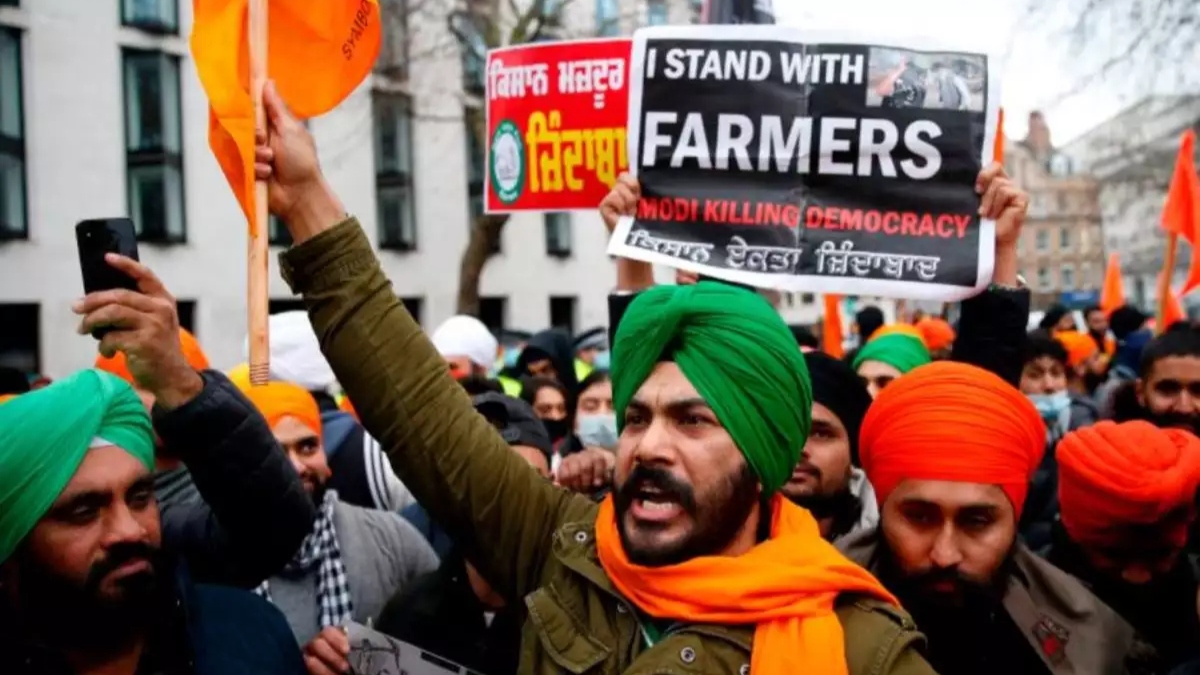The Khalistani separatists have made out the three farm laws as a direct attack on Sikhs, largely encouraged by two Labour MPs, Tanmanjeet Singh Dhesi and Preet Kaur Gill.
Sikhs in UK are well known for their intelligent moderation and their goodwill and service to others. Thus, it was a surprise when thousands of Sikh activists amassed to protest about the recently passed agricultural laws outside the India High Commission in Aldwych. These reforms, that to most seem to liberate the farmer, have by some in the UK sought to be converted into an alibi for holding “Khalistan Zindabad” rallies, disrupting London and threatening chaos.
The rally was organised by the Federation of Sikh Organisations, allegedly associated with Babbar Khalsa International. The BKI was proscribed by the UK government in March 2001, and the presence of Paramjeet Singh Pamma is testimony to its real motive: to slander India and India’s elected Prime Minister, to internationally blacken India’s reputation, and attempt to leave India isolated from friendly countries including the UK.
Two groups of protestors were summoned, the more numerous young rural immigrants, who brought the same political slogans heard in Delhi to the streets of London, and a second group comprising of Khalistan elements who shouted anti-India and anti-Prime Minister Narendra Modi catchphrases, analogous to Pakistan’s propaganda.
A few rural Punjabis seem to have been convinced by the hard left unions that this is an unfair deal for farmers, whereas the reforms leave the MSP unchanged and allow the farmer to choose his preferred buyer from a nationwide market, under guaranteed terms which are better for cash flow. These protests provide cover for state monopolies and the middlemen’s usurious commissions, who lose their power and profits now that everything is liberalised, better documented and more transparent.
The Khalistani separatists have made out the three laws as a direct attack on Sikhs, largely encouraged by two Labour MPs, Tanmanjeet Singh Dhesi and Preet Kaur Gill, who have jointly commandeered the All-Party Parliamentary Group (APPG) for British Sikhs under pressure from the International Sikh Youth Federation’s (ISYF’s) successor, the Sikh Federation. These two have empowered the few who hold secessionist ambitions in their community about a never-never land of Khalistan. It is lamentable that the protestors do not care for the situation of farmers and fishermen in the country where they live, Great Britain, with the same fervour or interest.
The demonstration did not observe the government’s Covid social distancing guidelines; there also were smoke bombs and firecrackers. The Metropolitan Police had issued warnings in advance that strict regulations introduced by the government remained in place to help prevent the spread of coronavirus, Thirteen people were arrested for breach of Covid regulations; later on four were released with a fine. These protests have allowed the usual critical voices in foreign media to report only from the protestors’ perspective and deliver stories portraying India as a “fascist state”.
There has been a lack of offensive defence from India in western circles to counter the toxic narrative spread by a plethora of separatist groups, with just one email sent out by BJP’s foreign affairs department the day after the protests. It would have been helpful to have some top level BJP people explaining the benefits of the laws on international news channels. This is needed when numerous British Labour MPs, who are always ready to bat for Pakistan, were joining Tanmanjeet Singh Dhesi and Preet Gaur Gill in lobbying Secretary of State Dominic Raab to intervene with India. The British government has refused to take the bait, saying that the matter is internal to India.

